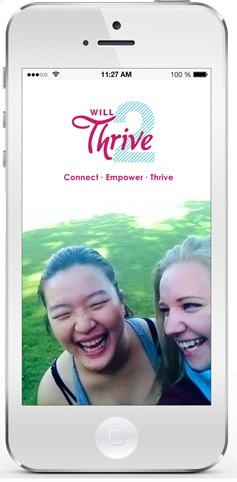 StartUp Health has added 13 more companies to StartUp Health's accelerator. The accelerator now has 84 companies in its portfolio.
StartUp Health has added 13 more companies to StartUp Health's accelerator. The accelerator now has 84 companies in its portfolio.
The company also shared several data points about the startups in its portfolio.
Startups in the program have raised $154 million as of September 2014 and represent seven countries: Canada, India, Ireland, Israel, Spain, and the US. The company explained that 42 percent of founders are physicians or practitioners and 29 percent of founders are women.
In the last couple years, three StartUp Health companies were also acquired. At the end of 2013, WebMD acquired EHR-neutral patient portal startup Avado, which will accelerate the WebMD's plans to enhance the connectivity between its recently relaunched WebMD patient app and its physician-facing MedScape app. And this year, Intel acquired Basis Science, the activity tracker company that makes the high-end Basis B1 Band.
Here is the most recent batch of startups added to StartUp Health's portfolio:
Toronto-based AprilAge has developed software that helps users visualize what they would look like down the road based on decisions they make. The program is intended to encourage people to make healthier decisions.
Vancouver-based Curatio offers a platform that connects patients with each other on a private social network. The network offers patients resources and guidance to manage their health effectively, but also provides them with a space to meet people with the same condition. So far, the startup offers three apps: one for heart and stroke, one for cancer, and one for Thalassemia, a blood disorder.
Bangalore, India-based DocEngage has developed a practice management platform for healthcare professionals. Through the platform, physicians can create and track patient records, manage patient records, track revenue, and perform billing functions.
New York City-based Fit4D creates plans for people with diabetes to stay adherent to their medication regimen. The platform includes coaching, educational materials, and communication with healthcare professionals.
Manitowoc, Wisconsin-based Jaystreet Technologies offers a service that helps fill canceled doctor's office appointments for patients. The company's technology is patent pending.
San Jose, California-based Kuveda aims to offer oncologists the analytic tools to conduct molecular profiling of patients with cancer. Then the service provides targeted therapies for the patients based on their specific results.
Marysville, Ohio-based LifeBio offers tools to help seniors make care transitions, communicate effectively with family and friends, and better remember. The software offers several features, including a template to create multimedia "stories" about the senior and an app that records video of seniors sharing stories from their day, which are stored in the cloud.
New York City-based Meals to Heal offers a meal delivery services for people who have cancer. Meals are delivered to their door and are made based on information specifically about cancer nutrition.
Ponta Grossa, Brazil-based MedCloud WebClinic has developed a platform from which physicians can manage and share healthcare information including test results and other information with patients and each other.
Barcelona, Spain-based Medtep tracks its patients' medical and wellness data and uses it to provide patients with personalized care based on their health metrics.
New York City-based Nutrify is a diet planning app for hospitals. The app provides tailored recipes based on the patient's nutritional requirements. The software takes into account a patient's health condition, allergies, and health goals when generating results.
Paducah, Kentucky-based Personal Medicine Plus has developed a patient engagement platform that aims to delay the onset of chronic conditions in patients, for example delaying diabetes in a pre-diabetic patient. Some of the goals the program helps patients reach include losing weight, quitting smoking, sleeping better, reducing stress, and improving sex life.
Detroit, Michigan-based Tome connects "office furniture to corporate wellness using gamification to increase employee engagement". It's currently in stealth mode.



















